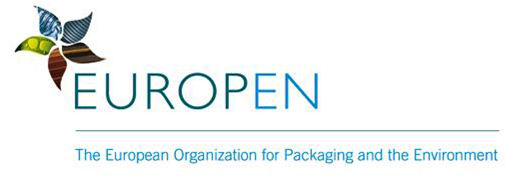
BRUSSELS, 24 May 2016 – Speaking at a multi-stakeholder event on the Circular Economy Package (CEP) today, EUROPEN called on EU policymakers to secure a strong legal framework for Extended Producer Responsibility (EPR) in the Packaging and Packaging Waste Directive (PPWD). The packaging supply chain organisation also called for clarification of methodologies and definitions to ensure comparable data reporting among Member States based on known starting points. Preventing differences in interpretation, EUROPEN argued, is crucial for a functioning Internal Market for packaging and packaged goods.
The event was hosted by MEP Karl-Heinz Florenz, EPP Group shadow rapporteur on the CEP, and brought together a large number of European Parliament, Member State and Commission representatives and other key stakeholders to discuss the CEP from a packaging and packaging waste perspective.
"The Circular Economy is addressing bottle necks of the European industry and society and turning these into a great potential,” said MEP Karl-Heinz Florenz. “We need a creative and innovative European industry in order to be prepared, to turn it into a success story and to enable new business models and new markets. The Extended Producer Responsibility (EPR) plays a key role here as it is an important tool to design out waste, to produce longer lasting, more durable and resource efficient products", he added.
“A real circular economy for Europe cannot be achieved without an Internal Market that functions properly. This is a prerequisite for securing the necessary investments to boost innovation,” commented Martin Reynolds (Crown Europe), EUROPEN Chairman. “To safeguard the Internal Market, we need to assess whether harmonisation between the Waste Framework Directive (WFD) and the PPWD makes sense on a case-by-case basis. Unlike the full life-cycle approach in the PPWD, the WFD concerns only the waste phase and covers a wide range of ‘product waste streams’, such as consumer electricals and electronics, textiles and furniture. Packaging is not a product per se, it is an integral part of the product/package system. It performs various roles and responsibilities, such as optimal preservation and protection of products, all along the value chain. These aspects go beyond the purely end-of-life considerations of the WFD, and define the separate and individual legislative context for the PPWD.”
During the discussion on EPR for packaging waste, Hans van Bochove (Coca-Cola Enterprises), EUROPEN Vice-Chair, underlined that “Producers have had an instrumental role in setting up EPR schemes to ensure the collection and sorting of used packaging and we take our responsibility very seriously. But we need clarity on where the responsibilities of all actors involved in packaging waste management begin and end. We also call on Member States and the Parliament to define the scope of the producer’s responsibility unambiguously and to limit it to paying the real end-of-life costs of collection and sorting for recycling of packaging waste to help meet the legal targets.”
Other panelists were Julius Langendorff, Deputy Head of the Waste Management & Recycling Unit at the Commission’s DG Environment and Katarína Butkovská, Environment Counsellor at the Permanent Representation of Slovakia to the EU, which holds the Council Presidency as from July 2016.






